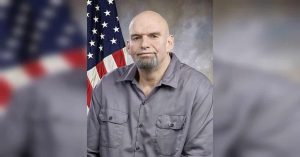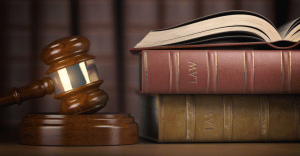House Chairman Warns D.C. Voting Laws May Lead To Non-Citizens Voting Nationally
Chairman Steil Criticizes Washington D.C.'s Voting Laws
House Administration Committee Chairman Bryan Steil, R-Wis., has expressed concern over the potential for non-citizens to influence elections across the United States, using Washington, D.C.’s local voting laws as an example. He argued that Democrats might use these laws as a roadmap to expand non-citizen voting nationwide, which he believes could undermine the integrity of U.S. elections.
Steil’s comments center around D.C.’s Local Resident Voting Rights Amendment Act of 2022, which allows non-citizens to vote in local elections if they have lived in the city for more than 30 days. He sees this as a troubling precedent that could spread beyond the capital.
Local Voting Rights Amendment Act Sparks Debate
The Local Resident Voting Rights Amendment Act, passed in Washington, D.C., permits both foreign nationals and American citizens who have resided in the district for at least 30 days to vote in local elections. This law was challenged in court last year, but the lawsuit was ultimately dismissed.
Steil, who leads the committee overseeing election integrity, warned that D.C.’s law might open the door for foreign nationals to vote in local elections, citing the example of Russian embassy workers. According to Steil, these individuals, though foreign citizens, could meet the 30-day residency requirement and cast votes in the city’s municipal elections.
Fears of Non-Citizen Voting Spreading Nationwide
Steil emphasized that D.C.’s voting law could serve as a blueprint for other municipalities across the country. He expressed concern that the framework could eventually expand beyond local elections to influence state and national elections. Steil remarked, "They want to use Washington, D.C., as a petri dish and roll this out nationally," indicating a broader strategy he believes Democrats may adopt to encourage non-citizen participation in U.S. elections.
Cleta Mitchell of the Election Integrity Network echoed these concerns, suggesting that some Democrats aim to convert non-citizens into voters. She pointed out what she believes is a significant flaw in current voter registration processes—while residency and identity verification are required, there is no mechanism to verify a person’s citizenship status.
The SAVE Act: A Legislative Push to Address Concerns
In response to these concerns, Steil and his committee have introduced the SAVE Act, a bill designed to tighten voter registration requirements by mandating proof of U.S. citizenship. This bill passed the House in July with bipartisan support, signaling widespread agreement on the need for election security measures.
Steil urged the Senate to pass the SAVE Act as quickly as possible, stating, "This is a common-sense bill that has no reason not to be taken up by the United States Senate." He stressed that ensuring U.S. elections are only open to U.S. citizens is essential for maintaining the country’s democratic integrity.
Georgia’s Brad Raffensperger Emphasizes Election Security
While concerns about non-citizen voting have gained traction at the federal level, state officials are also taking steps to safeguard election processes. Georgia Secretary of State Brad Raffensperger underscored his state’s commitment to election security, focusing on measures like timely reporting of absentee ballots and the increase in early voting.
Raffensperger stated, "Security has been my top priority. We’re going to make sure we have free, fair, and fast elections," highlighting the importance of early voting and transparent ballot counting in preventing potential voter fraud.
Calls for Increased Vigilance in Local Communities
Beyond legislative efforts, Mitchell also called for community involvement in protecting election integrity. She stressed the need for local monitoring of election offices and departments of motor vehicles (DMVs), where she believes the registration of non-citizens as voters could potentially occur without oversight.
"This is a really big threat," Mitchell said, encouraging communities to remain vigilant and take action if they observe any irregularities in the voter registration process. "People need to be watching their DMVs and watching their local election offices."
Potential Impact on Future Elections
As the 2024 election approaches, the debate over voter registration processes and non-citizen participation has become a focal point in discussions surrounding election security. Steil’s warnings, coupled with Mitchell’s concerns, suggest that the issue of non-citizen voting could play a significant role in shaping election policies nationwide.
With D.C.’s law allowing non-citizen participation in local elections and the potential for similar laws to spread to other municipalities, some lawmakers are urging quick action to ensure that only U.S. citizens can cast ballots in future elections.
Steil concluded by reiterating the importance of the SAVE Act, describing it as a critical tool for safeguarding U.S. elections. "We need to work together to make sure that U.S. elections are for U.S. citizens only," he said, emphasizing the need for both legislative and community-based efforts to prevent non-citizen voting.




